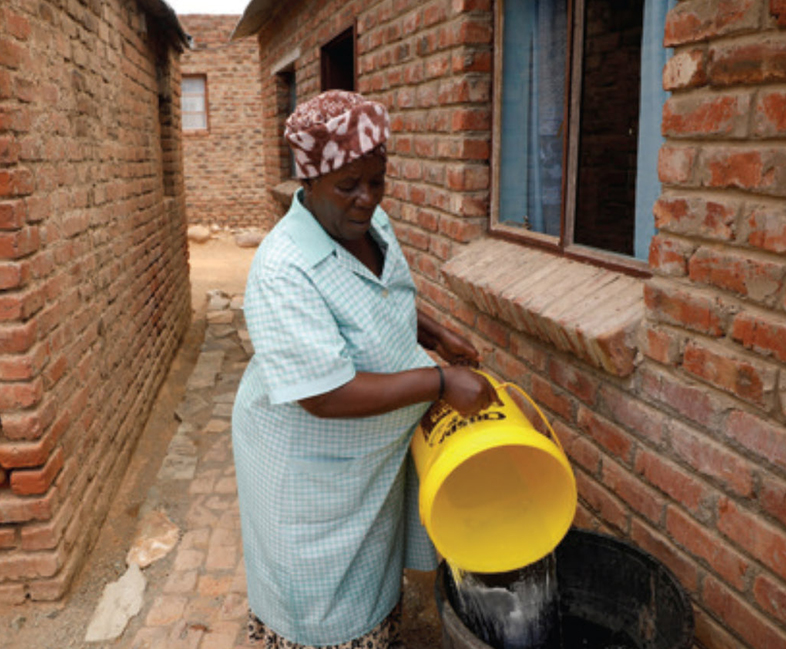- Home
- About
- Experts
- Publications
- Our Centers
- Policy Forums
- Speeches
- Events
- Multimedia
- Mon-Fri (9:00 am-7.00 pm)
- [email apolicyinstitute@gmail.com]
- +254 706 670 965
- Mon-Fri (9:00 am-7.00 pm)
- [email apolicyinstitute@gmail.com]
- +254 706 670 965

But African women farmers are excluded from conversations that determine agricultural policies, while discriminatory laws and practices deprive them of their land, their rights, and their livelihoods. However, initiative aimed at mentoring, empowering and raising the next generation of women in agricultural are starting to pay of
Africa women farmers play a vital role in food production and food security with 80% of the A woman pours water collected from a municipal water tanker into a storage container in a township in drought-stricken Graaff-Reinet, South Africa, November 17, 2019. [Photo/Agencies] agricultural production coming from small farmers, who are mostly rural women. According to the Food Agriculture Organization (FAO), women in some African countries spend up to 60 percent of their time on agricultural activities contributing up to 50 percent of labour on farms in sub-Saharan Africa. But African women farmers are excluded from conversations that determine agricultural policies, while discriminatory laws and practices deprive them of their land, their rights, and their livelihoods.
First, women farmers in Africa depend on rain-fed agriculture, and have little access to farm inputs including; fertilisers, seeds, water, credit, and to markets for their products. Second, most of them either own small pieces of land or have no land at all and receive 7 percent of extension services, 1 percent of all agricultural credit and own only 1 percent of the land.